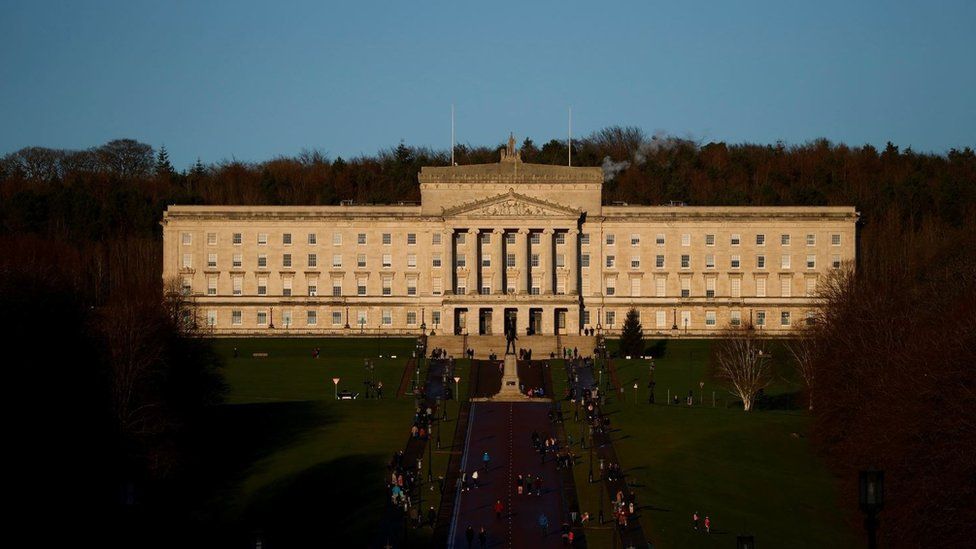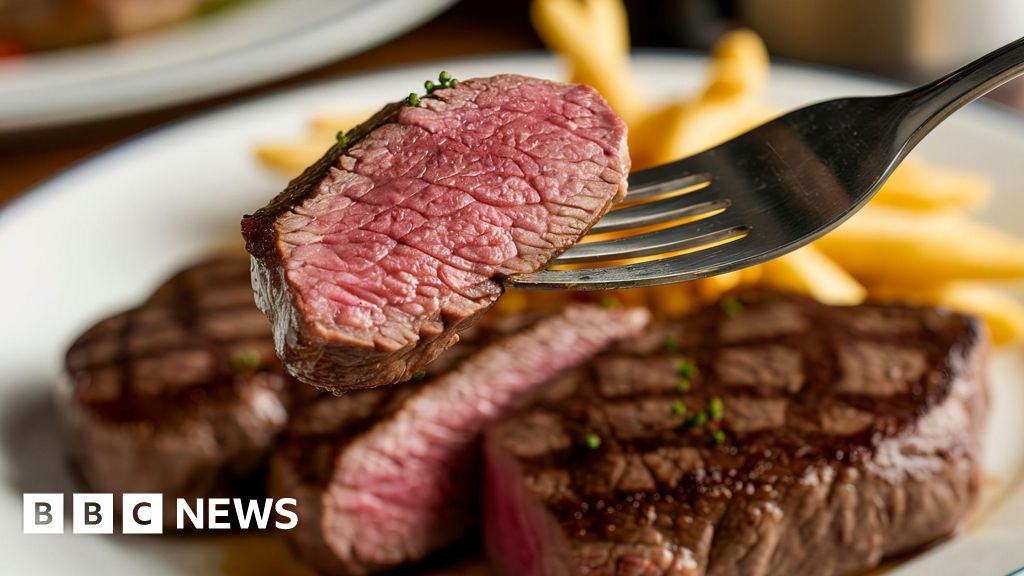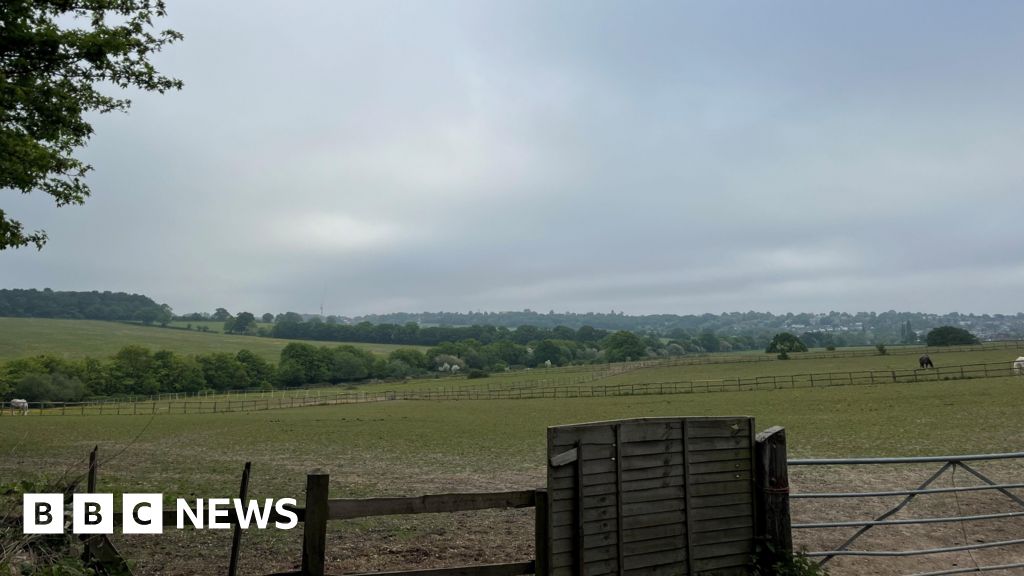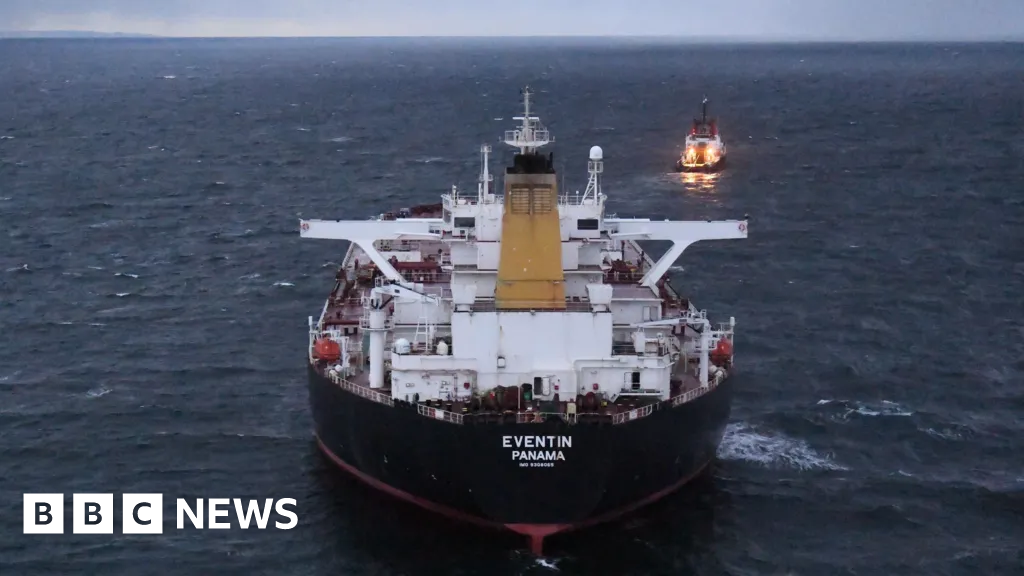ARTICLE AD BOX
 Image source, Reuters
Image source, Reuters
Power-sharing collapsed in February 2022 when Paul Givan resigned as first minister
Party leaders and officials will meet on Friday to discuss the key issues for an incoming Stormont executive.
The Northern Ireland Assembly will sit on Saturday, two years exactly since power-sharing collapsed.
DUP leader Sir Jeffrey Donaldson said his party would end its boycott, after MPs passed legislation on a new deal on post-Brexit trade rules.
Meanwhile, BBC News NI understands that MLAs will have their full salaries restored within days.
They have seen a reduction in their salaries of almost a third since January 2023, enacted by the Secretary of State Chris Heaton-Harris.
The Northern Ireland Office has confirmed that the determination will expire at the end of Sunday, the day after a new Assembly Speaker is elected.
On Friday, leaders of the four parties entitled to seats in the decision-making Stormont executive will meet to finalise arrangements for Saturday's special sitting.
The sitting is due to take place at 13:00 GMT on Saturday.
What happens on Saturday?
The first order of business for members (MLAs) when they enter the assembly chamber will be to elect a new Speaker - this must happen before anything else.
Once the Speaker is elected, the parties entitled to jointly lead the executive - the body that makes decisions and policy in Northern Ireland - will make their nominations.
Image source, PA Media
Image caption,Michelle O'Neill is in line to become first minister
For the first time, Sinn Féin will nominate a first minister because it won the most seats in the assembly election in May 2022.
The DUP, as the largest unionist party, will nominate a deputy first minister for the first time.
Although the first and deputy first ministers are joint offices and both hold equal power, Michelle O'Neill becoming the first-ever republican first minister of Northern Ireland will mark a symbolic moment.
What's in the deal?
It will reduce checks and paperwork on goods moving from the rest of the UK into Northern Ireland.
It means there will no longer be "routine" checks on Great Britain goods which are sent to Northern Ireland with the intention of staying there.
Image source, PA Media
Image caption,DUP leader Sir Jeffrey Donaldson (left) reached a deal with the UK government on post-Brexit trade issues
Those changes involve the maximum flexibility allowed under a previous EU/UK deal it is understood will be acceptable to the EU.
The DUP had demanded changes to the way goods are traded between Northern Ireland and Great Britain in order for it to end its Stormont stand-off.
On Thursday, party leader Sir Jeffrey Donaldson said given new legislation to implement those changes had passed the Commons, he would now support the Stormont institutions being restored.
Who will be the opposition at Stormont?
The Social Democratic and Labour Party (SDLP), which is the fifth-largest party with eight assembly members, does not qualify to be be part of the next executive and instead will go into opposition.
Speaking to BBC NI's Good Morning Ulster, SDLP assembly member Matthew O'Toole said the opposition will hold the parties in the executive to account and make the institutions "work effectively for the people of Northern Ireland".
"For two and a half decades we have had stop-start devolution. It has delivered us a measure of stability and moved us beyond conflict and embedded the functions of power sharing," he said.
"But it hasn't delivered good government and better public services, most people don't think it's delivered for them."
One party which has a decision to make are the Ulster Unionists, they are entitled to take one seat in any new executive, but have not decided if they will take it.
UUP assembly member John Stewart said his party had been "shut out" of the process and needed to discuss with the other parties many aspects, including what ministerial portfolio they were likely to get in any executive.
Mr Stewart said the UUP would be meeting on Friday night to make a decision.
"If the conditions are right, the Ulster Unionists will be in the executive; if the conditions are not, we will be serving the public in opposition," he added.
Meanwhile, the Alliance Party are entitled to two seats in the executive, but it also has a decision to make.
MLA Andrew Muir told BBC NI's The View his party had a mandate to take to ministries and described this as their "default", but added that considerations had to be taken after meeting with the other parties on Friday.
"There are benefits of going into opposition, but there are also significant benefits of going into government," he said.

 1 year ago
87
1 year ago
87








 English (US) ·
English (US) ·